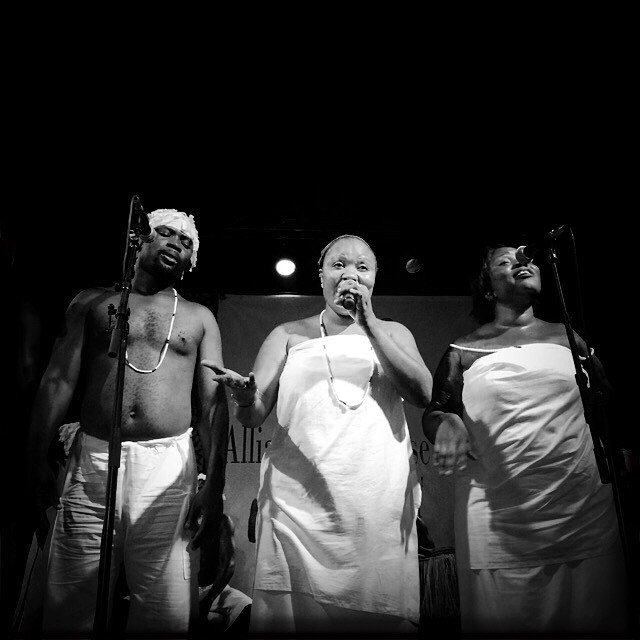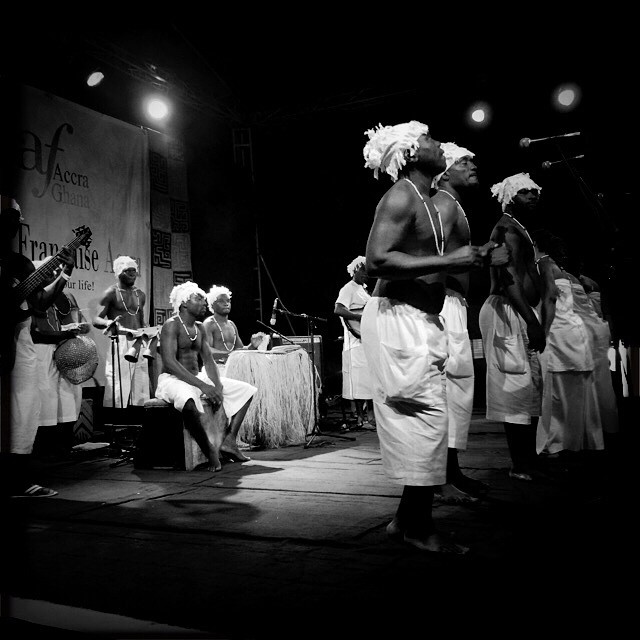Stories of Old.
Two things remain constant; change and the power of music. Music is one magical language that transcends race, class, gender, status and every other boundary. Throughout history, music has been presented in different genres and styles, serving different purposes and evoking different feelings and emotions within listeners. However, not all songs outlive their era or generation. Blast from the Past has been curated to celebrate Africa-Diasporan songs that will forever be immortalized.

We cruised through the streets of Accra that day with no cares or worries. Just me and my father, engulfed by melodies and sounds of a guitar, drums, clips, and gongs. That day, I listened attentively as I tried to decipher the tales of my people and discover more about my heritage. Wulomei, he uttered as he proceeded to educate me on what I was listening to. I was around the age of eleven when he first exposed me to Nii Tei Ashitey and the Wulomei band; I instantly fell in love.
Formed in 1973, Wulomei is a traditional folk percussion group hailing from Accra, Ghana. The original collective was formed by Raymond Nii Ashitey and Saka Acquaye, accompanied by Mary Naa Amanua Dodoo on lead vocals. The group specialized in creating authentic Ga music that spoke to the people, customs, and traditions of the Ga tribe within Ghana. Armed with creativity, tales, fables and sea shanties, Wulomei created a stupendous catalogue that has withstood generations. Wulomei cultivated a unique sound which drew from various genres such as highlife, kolomashie, and kpanlogo.

When translated, it is rumoured that the word ‘Wulomei’ is a combination of the words “Wor” and “Lumoi” meaning our leaders or priests. The meaning of the word Wulomei speaks to the culture and purpose of the troupe as well as the attire the group is seen in.
Wulomei’s first LP entitled “Mibe Shi Dinn” and was released in 1974. Within the same year, the cultural troupe followed up with “Walatu Walasa” which produce several hits. Wulomei has released a total of six albums, with two under the name Nii Tei Ashitey And The Sensational Wulomei. The success of Wulomei has inspired the creation and formation of bands and collectives such as Dzadzeloi, Abladeim, Allan Family, and Suku Troupe.
This week, we dare to reflect on our past and customs as we explore the phenomenal catalogue of the Wulomei band. This week the category is “Stories of Old.”
Mibe Shi Dinn
Mibe Shi Dinn is a sombre yet vibrant tune detailing the power of being observant in various settings and/or situations. Within the song, the Wulomei Band chant repeatedly in the Ga language, “I am laying low as I watch you, I have become quite as I watch and observe.”
Tswa Omanye Aba
Featured on the album “Mibe Shi Dinn,” Tswa Omanye Aba is a thought-provoking song that touches on the topic of slavery. Wulomei referred to slavery and colonialism within the song as they questioned the current state of affairs. Tswa Omanye Aba provides historical context to the plight and struggles of our ancestors as Wulomei ask the question, “Did our ancestors sell us into slavery to the white man?”
Akosua Serwa
Sang in Akan Kasa (Twi), Akosua Serwa tells a tale of heartbreak and pain. Prepare to be captivated by the calabash and gome drum as the band sings of moving on from heartbreak. “That is how life, my love may God bless you forever.”
Meridian
Journey to the Meridian with Wulomei on this nostalgic track. Merdian is one of Wulomei’s hit song that emerged from “Walatu Walasa.”
Akrowa
Akrowa was one of the first Wulomei songs that my father played for me. Enjoy this rhythmic and dynamic tune filled with sweet guitar melodies accompanied by the gong and drums.
Kaafo
Kaafo is a powerful lullaby which echos the message silence is golden. The band advise that when there are precious jewels in your mouth, don’t open your mouth or cry.
Wulomei Cultural Troupe stands for so much more than just music. Once you being to full dive into Wulomei catalogue you being to understand the power of music. You being to feel and see how music can carry legacy, traditions, and tales. Till this day when I listen to Wulomei, I still fall in love. I begin to have flashbacks of simpler times as I reminisce on history and how far we have come.
